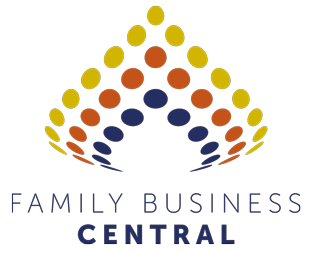
Over the years, as we have worked with families developing and writing their family charters, we have evolved our process and, in fact, been able to reduce the time required while at the same time increasing the buy-in from all family members. It is a rich and rewarding process for both the family and for us.
However, one question that all family business have to ask themselves is: “are you actually ready to do a Family Charter?”
What I mean by this is:
- Are you ready to have honest conversations within the family about the business and the family itself?
- Are you ready to address sometimes challenging issues that many if not all families struggle with?
- Is the family ready to have conversations around money?
- Are the founders/senior generation ready to seriously talk about succession, their ongoing role (as it is currently, or moving to specific areas they want to focus on) in the business? and
- Are the senior generation then ready and able to create space for the Next Generation to come into the business?
The answers to the above questions will mean different things for different people and will also demand different expectations from the different sets of parties involved.
For example, the current generation need to think about what they want to do when they start to step back from the business. What are their plans, what are their dreams and most importantly, what is going to be their reason for getting out of bed in the morning when they are not as involved in the business?
For the current generation, who’ve worked so hard to build up the business, there needs to be a level of trust so they are confident in the next generation coming and leading the business.
For members of the next generation they need to be aware that if they want a senior role in the family business then they have to earn it, they need to be able to demonstrate they have the skills and knowledge. People get roles based on merit, not just because they’re the oldest or the favourite.
For the whole family there is the issue of fairness and how it is managed. Often in families, money or opportunities have gone to some family members but not others— is this an issue? If it is, discussions are required on how to balance it out.
The importance of common ground
Families evolve and so members of the next generation may do things differently to the current generation, there may be differences in who they vote for, who they marry, how they bring their kids up, what they do with their money — is the family ready to acknowledge this and still recognise the common ground that runs through their family?
When we start, families often worry enormously about potentially discussing some of these issues and that people may get upset or hurt. Our job is to manage these issues sensitively and effectively so that they are effectively resolved and the family can move on.
We start all our work with confidential individual interviews with each family member. This gives us a lot of information on what is important in the family, who is worried about what and ultimately what the family wants as it moves forward. From this process we can clearly identify the common ground between family members — which is usually far greater than most families think and we also start to identify the issues that people are worried about and that we need to address.
From here we develop our plan on how to move forward. We may go back to specific family members to discuss certain issues—and how we can best resolve them. For example, we have often gone back to family members to discuss the issue of whether step children are to be considered in the succession plan. We have asked senior generations about how best to communicate about a very difficult chapter in the family history the future generations need to know about. In another instance, we had to ask about one family member receiving a significant financial sum which others in the family had not received and from there work out a way to resolve the sense of unfairness that was in the family.
This is not necessarily as hard as it sounds. Many families worry far more than is justified about these types of issues. We focus on carefully and sensitively managing the issues that come up and ensure that when they do, they are dealt with in a way that everyone in the family is comfortable with. So many times family members will tell us that it was nowhere near as bad as they thought it was going to be when we addressed the issues.
Ultimately, while these conversations may sound difficult they are often much easier than a family think — and invariably it is a huge relief when they are discussed and resolved.
So, if you are thinking about doing a family charter—and we urge all family businesses to do so — think about whether you’re happy to have conversations within the family. Think about what you want in the future whether as the senior or next generation and what that might entail. Remember it is usually nowhere near as scary as you think it might be — and the upside of having these conversations is a far more united family that has a vision for its future that everyone benefits from.
As we watch families who go through this process, by the end, so often the family is transformed, united, connected and re-energised. Family members see potential they hadn’t seen before and rebuild relationships back to what they use to be.
We are extraordinarily privileged to be part of this process.
To find out more about how we can help your family business through this process, get in touch via philip@familybusinesscentral.com

